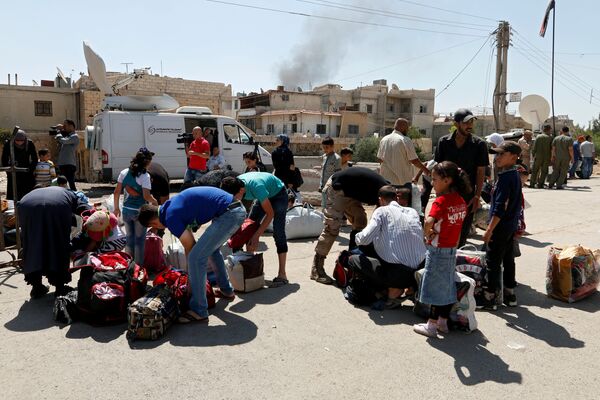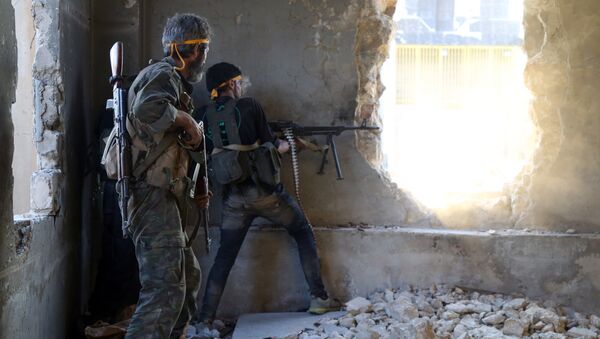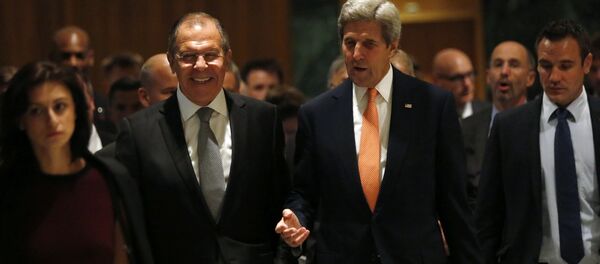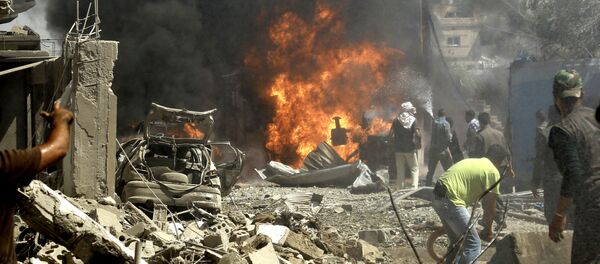The journalist, who recently visited Syria, called the armed rebels backed by the United States, the European Union, NATO and Gulf states the "main stumbling blocks" when it comes to implementing the new agreement.
"Historically, again, the reason that the ceasefires have failed is because the terrorists have not respected" them, she said.
Beeley cited two villages in Idlib, Kafarya and Foua, besieged since March 2015 as an example.
"There has never been a respect of the ceasefire there," she said. "The shelling of civilian houses has continued through all of the ceasefires and largely been ignored by Western media. And absolutely no humanitarian aid has been allowed into Kafarya and Foua since March 2015 except for a couple of very poorly equipped UN convoys that made it through."
Both Lavrov and Kerry emphasized that the new deal will only work if all stakeholders involved in the Syrian conflict will fulfil their part of the agreement. America's top diplomat said that the opposition "has indicated they're prepared" to meet the "standards that we have established."
This is something that Beeley was skeptical about.
"What guarantees are the United States, the Gulf states and Turkey giving that the terrorists that they control, equip, fund and arm are not going to break the ceasefire?" she asked.

The journalist also noted that the Syrian government has to be allowed "to respond" if terrorists do not respect the ceasefire.
Beeley also pointed to a recurring pattern when a US-sponsored secession of hostilities was introduced at a time when the Syrian Arab Army secured major victories against terrorists trying to overthrow President Bashar al-Assad.
"Yet again we have seen huge advances made by the Syrian Arab Army. If they retake [areas in southern and southeastern Aleppo], it would then mean that the road to Damascus from southern Aleppo will be reopened for the first time in years because it is under terrorist control," she detailed, adding that these positive developments could be "derailed" by the ceasefire.




